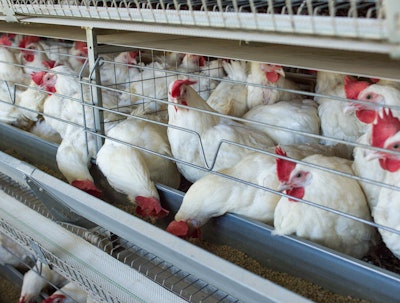
Chaser223 | BigStock.com
Broiler chickens are remarkably efficient animals, but their performance comes at a cost: sensitivity to heat stress. As environmental temperatures rise above 28 degrees C, broilers begin to reduce feed intake, lose weight gain efficiency, and show elevated mortality rates. Once temperatures exceed 32 degrees C, even short-term exposure can trigger metabolic collapse in fast-growing flocks. So, how can nutrition help mitigate these risks?